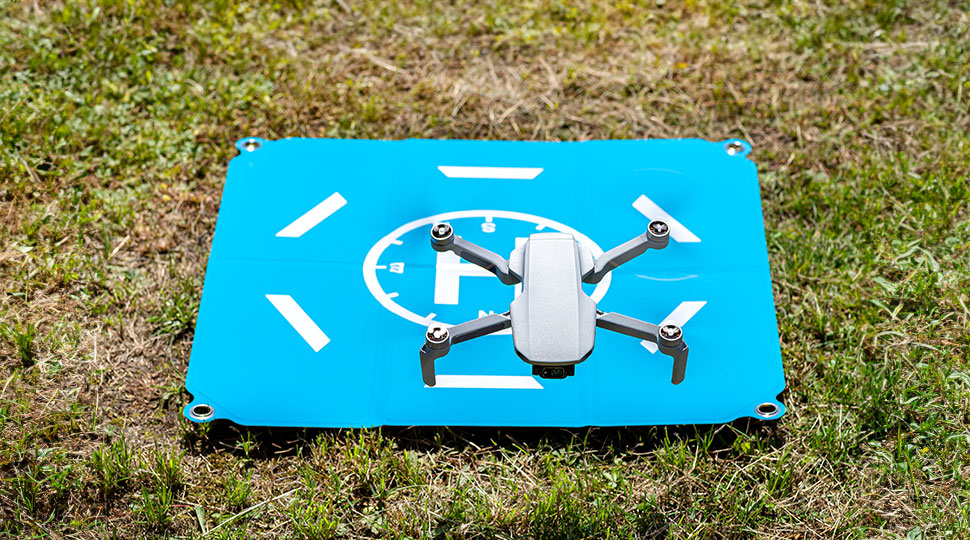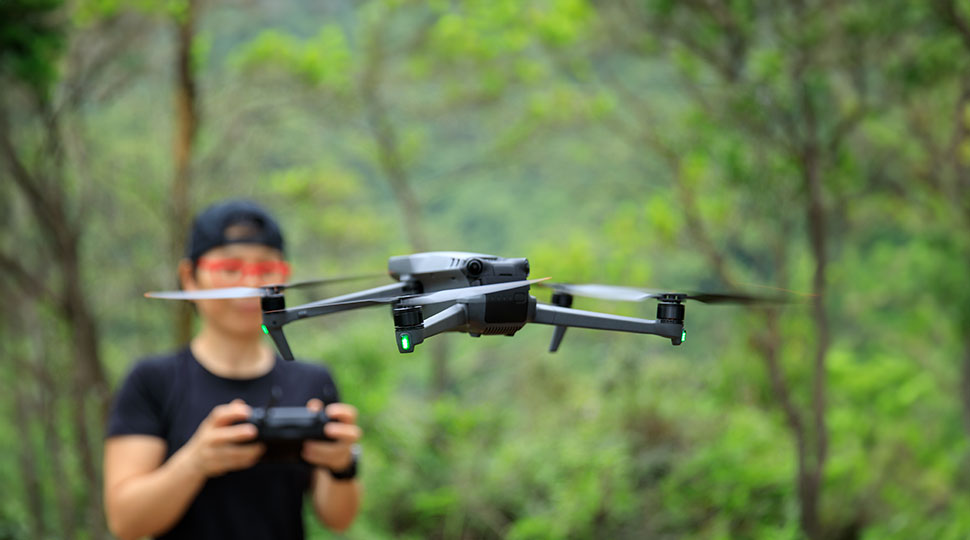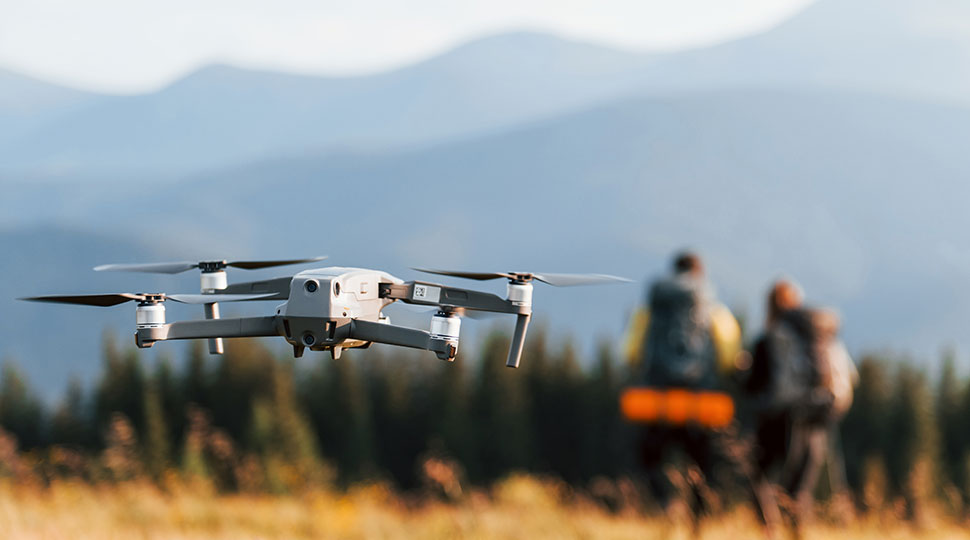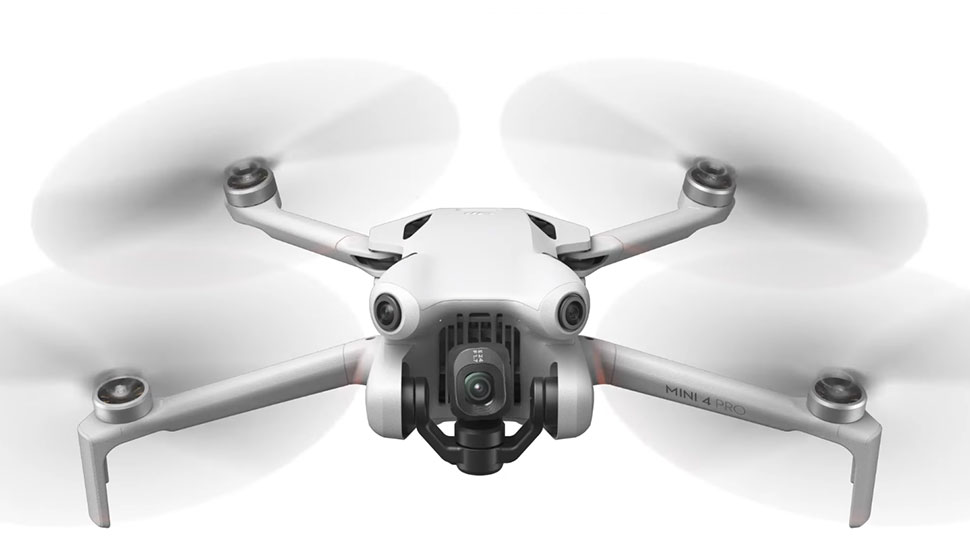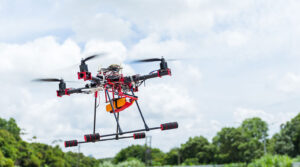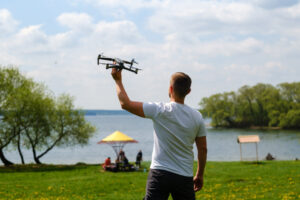Drones, also known as unmanned aerial vehicles (UAVs), have rapidly grown in popularity in recent years. These remote-controlled aircraft can be used for a wide range of purposes, such as aerial photography, mapping, and even delivering packages. With the increasing interest in drones and the various benefits they offer, it’s essential for potential buyers to be well-informed before buying a drone.
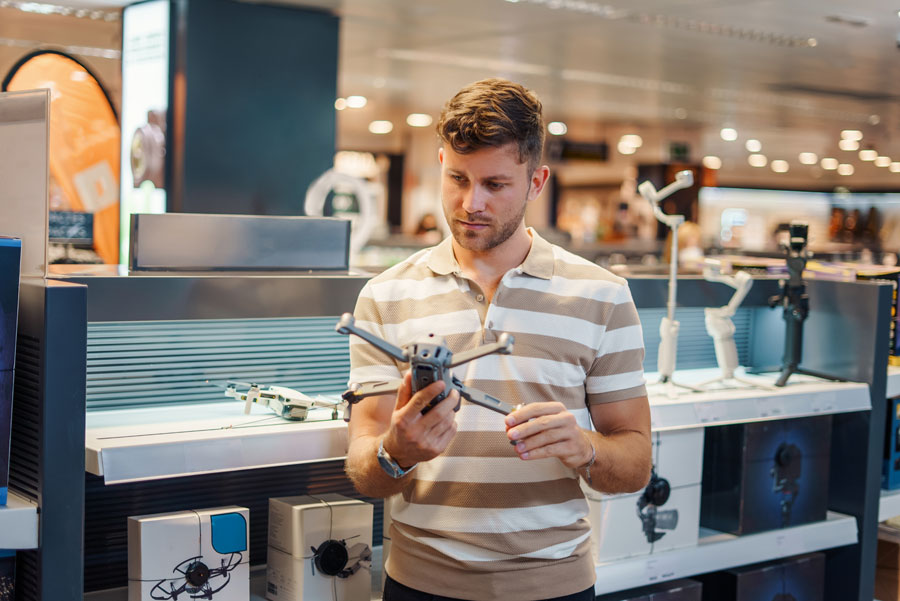
Let’s look at ten must-know tips to help you choose the right drone for your needs, including understanding drone laws and regulations, considering the intended use, understanding drone battery life and range capabilities, and choosing the right camera quality.
Get the latest articles in your inbox fresh and ready to read …
Get the New To Drones "All Access Pass"
All Access Pass members enjoy unlimited access to entire articles – 100% FREE
By signing up you agree to our Terms of Service and Privacy Policy. You also agree to receive our newsletters (you can easily and quickly opt-out at any time).
You will receive free access to all of our articles while you are a member of the site.
Tip #1: Research Drone Laws and Regulations in Your Area
Before buying a drone, it’s crucial to familiarize yourself with the applicable drone laws and regulations in your area. The Federal Aviation Administration (FAA) has established guidelines for drone operators in the United States, which include registering your drone, following altitude and speed restrictions, and avoiding flying near airports or other restricted airspace. Additionally, some states and local municipalities have their own specific regulations that you’ll need to comply with.
Drone laws and regulations can vary depending on your location, so it’s essential to research the specific rules that apply to you. Some common regulations include obtaining a remote pilot certificate for commercial use, abiding by no-fly zones, and maintaining a line of sight with your drone at all times. Failure to comply with these regulations can result in fines or other penalties, so it’s crucial to ensure you’re operating within the law.
Tip #2: Consider the Intended Use of the Drone
Before buying a drone, it’s essential to consider how you plan to use it. Drones can be used for various purposes, from recreational flying and photography to commercial applications like mapping, surveying, and agricultural monitoring. Understanding your intended use will help you select the right drone model and features to meet your needs.
If you plan to use your drone primarily for recreational purposes, a more straightforward, user-friendly model may be all you need. These drones typically have a lower price point and are easier to operate, making them a great option for beginners or casual hobbyists. On the other hand, if you intend to use your drone for commercial purposes, you may need a more advanced model with specific features tailored to your industry.
Tip #3: Understand Battery Life and Range Capabilities
Drone battery life is a crucial factor to consider when choosing a drone, as it determines how long you can fly before needing to recharge or replace the battery. On average, most consumer drones have a flight time of around 20-30 minutes per charge. However, more advanced models can offer longer battery life, with some capable of flying for up to an hour on a single charge.
It’s essential to consider your intended use when evaluating drone battery life. For example, if you plan to use your drone for aerial photography or videography, a longer battery life may be necessary to capture the shots you need without interruption. Alternatively, if you’re using your drone for recreational flying in a local park, a shorter battery life may be sufficient.
In addition to battery life, it’s crucial to consider the range capabilities of your drone. Range refers to the maximum distance your drone can travel while maintaining a connection with the remote controller. Most consumer drones have a range of around 0.5 to 5 miles, while more advanced models can reach distances of up to 10 miles or more. Keep in mind that factors such as interference from buildings or other obstacles can affect the actual range of your drone.
Tip #4: Choose the Right Camera for You
One of the primary reasons many people are buying a drone is for aerial photography and videography. If capturing high-quality images and videos is a priority for you, it’s essential to choose a drone with an appropriate camera. Drones come equipped with various camera types, ranging from basic models with lower resolution to professional-quality cameras capable of capturing stunning 4K footage.
When considering camera quality, it’s important to evaluate factors such as resolution, frame rate, and field of view. Higher resolution cameras will produce sharper, more detailed images, while a higher frame rate will result in smoother video footage. Additionally, a wider field of view will allow you to capture more of the scene in a single shot. Keep in mind that higher-quality cameras often come with a higher price tag, so be sure to balance your desired camera quality with your budget.
Some drones come with an integrated camera, while others offer the option to attach your own camera, such as a GoPro or other action camera. If you already own a high-quality camera that you’d like to use with your drone, consider purchasing a drone that is compatible with your existing camera equipment.
In addition to camera quality, it’s essential to consider the drone’s gimbal system. A gimbal is a stabilization system that helps keep the camera steady during flight, resulting in smoother, more professional-looking footage. A drone with a high-quality gimbal will allow you to capture better images and video, even in challenging conditions such as strong winds or turbulence.
Tip #5: Determine if You Need Special Features
Some drones come equipped with special features that can enhance your flying experience or help you achieve specific goals. For example, GPS navigation systems can help your drone maintain a stable hover and return to its starting point if it loses connection with the remote controller. This can be particularly useful for beginners or those using their drone for photography or videography, as it allows for more precise positioning and reduces the risk of losing the drone.
Automatic take-off and landing features can also be beneficial, especially for novice pilots. These features simplify the process of getting your drone in the air and returning it safely to the ground, reducing the potential for accidents or damage.
Consider whether these special features are essential for your intended use or if they would simply be a nice-to-have addition to your drone experience.
Tip #6: Decide What Level Pilot You Are
Drones are available at various skill levels, from beginner models designed for those new to drone flying to advanced models for experienced pilots. It’s crucial to select a drone that matches your skill level to ensure a safe and enjoyable flying experience before buying a drone.
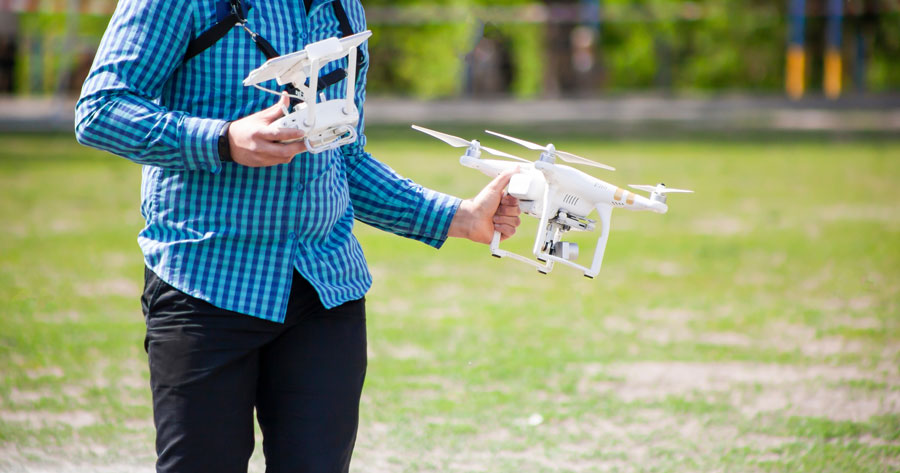
Beginner pilot: If you’re new to drone flying or have limited experience, consider a drone with beginner-friendly features such as automatic take-off and landing, GPS stabilization, and obstacle detection.
These features can make it easier to learn the basics of drone flying and help prevent accidents.
Intermediate pilot: If you have some experience with drone flying and feel comfortable with basic maneuvers, you may be ready for a more advanced model. Intermediate drones often offer longer flight times, greater range, and higher-quality cameras, allowing you to expand your skills and capture more impressive aerial footage.
Advanced pilot: Experienced drone pilots may be interested in models with advanced features such as programmable flight paths, customizable camera settings, and support for first-person view (FPV) goggles. These drones can offer a more immersive and challenging flying experience, allowing you to push your skills to the limit.
Tips #7 - 10: Other Considerations Before Buying a Drone
Price point: Drones are available at various price points, from budget-friendly models under $100 to high-end models costing thousands of dollars. Consider your budget and the features you require when buying a drone. Keep in mind that investing in a quality drone upfront can save you money in the long run by reducing the need for repairs or upgrades.
Flight time: As previously mentioned, drone battery life can vary significantly between models. Consider your intended use and whether a longer flight time is essential for your needs. It may also be worth investing in additional batteries to extend your flying sessions without needing to recharge.
Warranty: Drones can be a significant investment, and it’s essential to ensure you’re protected in case of defects or issues. Research the warranty options available for the drone you’re considering and whether you can purchase additional coverage if desired.
Repairability: Accidents can happen, and drones may occasionally require repairs or replacement parts. Consider the availability of replacement parts for your chosen drone and whether you can easily perform repairs yourself or if professional service is required. A drone that is easy to repair can save you time and money in the long run.
Cleared for Takeoff
Purchasing a drone can be an exciting endeavor, but it’s crucial to be well-informed before making a decision. By considering factors such as drone laws and regulations, intended use, drone battery life, camera quality, and your skill level, you can find the perfect drone to meet your needs.
Remember to also consider other factors such as price, warranty, and repairability when making your decision. With careful research and consideration, you’ll be well on your way to enjoying your drone and exploring the world from a new perspective.

